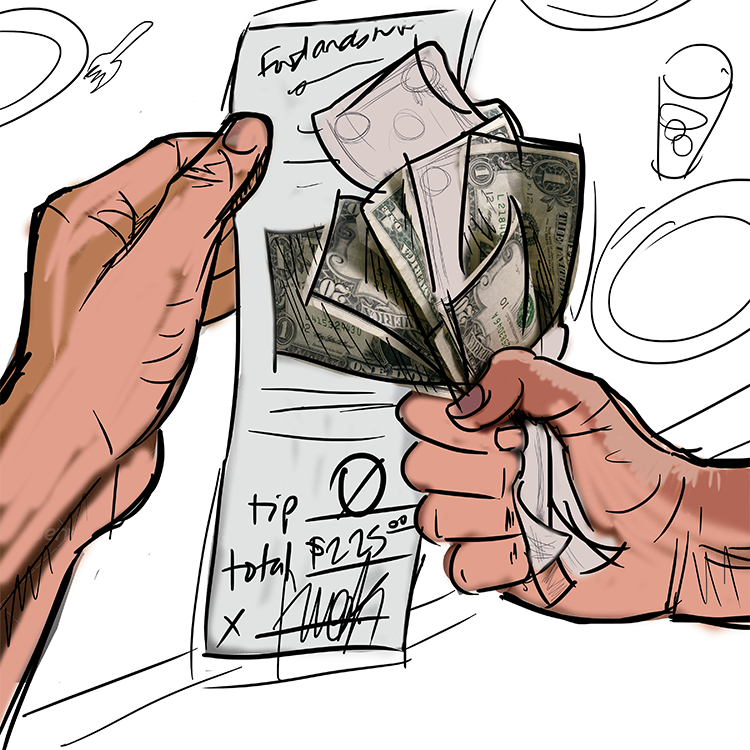Whether it be for a birthday, a date or just another social gathering, there is one question brought to the dinner table that many continue to ask: Are you going to leave a tip?
The answer for me is no. The act of tipping should cease to exist.
When working for any business or company, it is expected for each worker to be helpful, kind and courteous to all of the guests. For many waiters and waitresses, their job involves tending to customer’s needs for their meals and to make sure all items that were ordered are received.
Michael Lynn, a tipping expert, explains the reasons why so many people tip. He says there are five basic motives. Some people tip to “show off,” to help the server, to supplement a worker’s income, to get future service and some to avoid disapproval.
People shouldn’t have to feel as if they need to avoid disapproval when paying for their meal. Good service should be mandatory, regardless if a customer is going to leave a tip or not. If someone decides they do not want to leave a tip, they should be able to feel comfortable with that option.
Lynn also mentions that the biggest reason customers are encouraged, and sometimes even forced, to keep tipping is that it allows for restaurants to reduce menu prices. This increases demand, thus gaining more of an incentive to enforce tips as more customers come by.
Tapingo is an app I frequently use to order food online. I’ve used this app several times since I moved to Chico and I’ve noticed there was a recent change in the app. The option to change the tip amount has been removed and tipping is now mandatory when ordering food.
People should have the option as to whether or not they want to leave a tip. The last two orders I’ve made on Tapingo were completely wrong and because it is extremely difficult to contact their customer service, I was not able to get a refund or receive any help at all. It was a waste of a tip that should have come from good service and a perfect order.
Sure, many restaurant workers rely heavily on tips because it is said to be another form of income. The Atlantic mentions that customers would be spending less if a business maintained the gratuity-free system. It would force owners to either raise menu prices further or cut worker wages, neither of which were “comfortable” courses of action.
The Atlantic also states that the seafood chain Joe’s Crab Shack, which has 130 locations, tested out a service included the model with the announcement that it would eventually banish tipping at all 130 restaurants and raise menu prices to cover the cost of service. Higher prices on the menus shouldn’t be an issue to those who tip regularly, knowing that the same amount would have been spent if they were to have tipped anyway.
Small Biz Trends says restaurant operators feel they need to do something to offset the inequality in pay for servers and kitchen staff, such as cooks and dishwashers. Removing tips can surely help the inequality of pay for those positions.
It’s an unpopular opinion and I have tipped before when a barista has offered to remake my coffee I just spilled or when a waiter asks if I’d like to change my order for free because I wasn’t pleased with my original order. But to bring me utensils, add cheese onto my soup or to bring my sizzling chow mein to my table — I don’t feel guilty for not tipping and no one else should either.
Rachel Reyes can be reached at opinioneditor@theorion.com or @theorion_news on Twitter.











